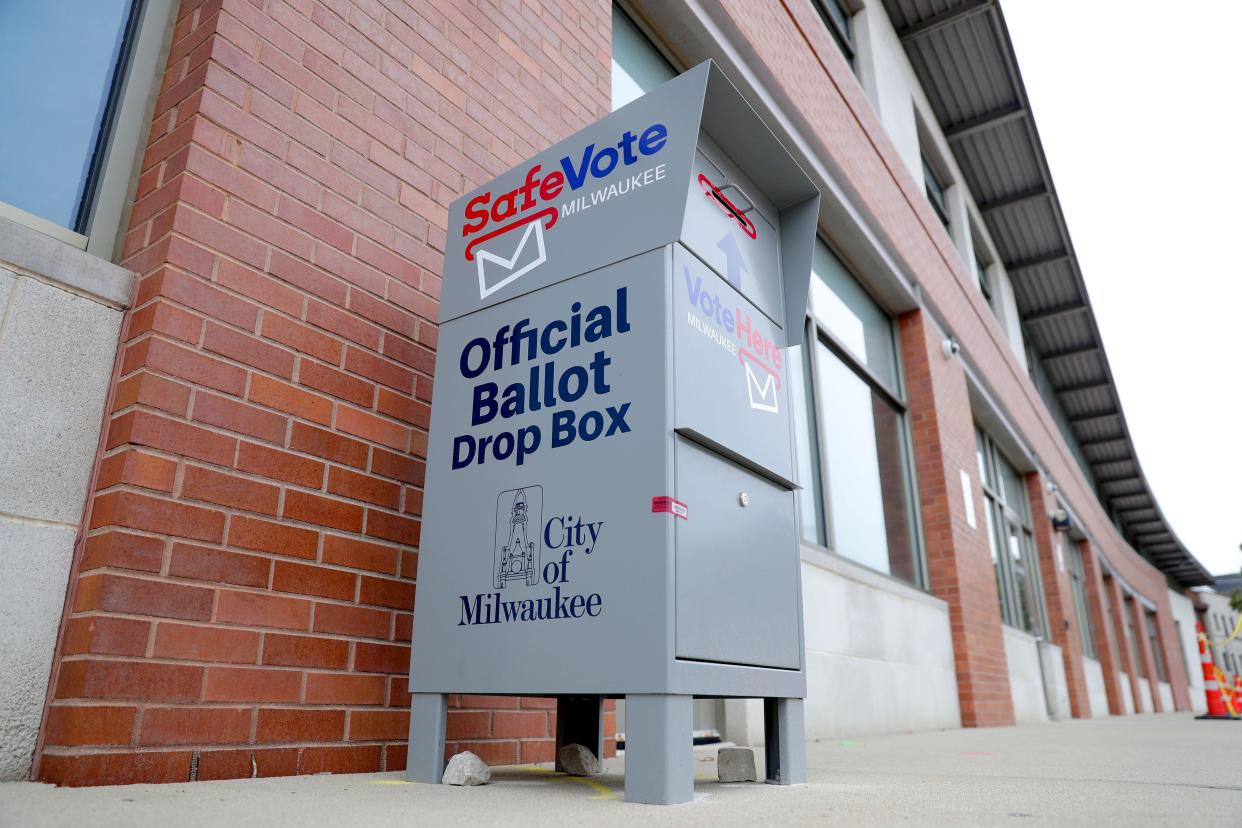Wisconsin Supreme Court allows lower court's ban on the use of ballot drop boxes for April election

MADISON - A closely divided state Supreme Court ruled Friday that it would allow a lower court decision to go into effect that will ban the use of ballot drop boxes for the April election.
Drop boxes can still be used for next week's primaries and it's possible the high court will change course and allow them for other elections.
While a final decision is yet to come, Friday's 4-3 ruling suggests the use of ballot drop boxes could soon come to an end in Wisconsin. Drop boxes became popular during elections in 2020 as the coronavirus spread across the state.
Two suburban Milwaukee men last year sued to block the use of ballot drop boxes with the help of the conservative Wisconsin Institute for Law & Liberty. A Waukesha County judge in January agreed with them and ruled they could not be used.
More: Conservatives launch multipronged effort to block ballot drop boxes in Wisconsin
An appeals court quickly stepped in and ruled the drop boxes could be used in the February primary because it was happening so soon.
The state Supreme Court took over the case soon afterward and kept in place the ruling that allowed the use of drop boxes for February.
The state Elections Commission and others asked the high court to extend that policy until at least April. The justices declined to do that on Friday, saying they would let the lower court ruling go into effect that bars the use of drop boxes for that election and ones after it.
The justices' ruling is not the last word in the case. It is expected to decide the case in the coming weeks or months, and that ruling will determine the ultimate fate of drop boxes.
Also at issue in the case is whether voters can have someone else deliver their absentee ballots for them. That practice will be allowed for Tuesday's primary, but not the April election.
Strict limits on returning absentee ballots for others will mean that political groups cannot collect ballots from voters and take them to clerks. The limits will also prevent people from dropping off ballots at clerks' offices for family members or neighbors.
Disabled voters argue that policy will make it harder for them to vote and could violate their rights.
"People who cannot get out of bed, people who cannot move their arms, people who are paralyzed, people who do not have hands — they must have someone else assist them with returning their ballot," said Barbara Beckert, director of the Milwaukee office of Disability Rights Wisconsin. "People will be disenfranchised if they cannot have someone else assist them."
The majority in Friday's decision consisted of the four justices who were elected with the support of Republicans. The three justices elected with backing from Democrats were in dissent.
The case appears to hinge on the views of Justice Brian Hagedorn, who was elected with Republican help in 2019.
Last month he joined the liberals in the 4-3 decision that said the drop boxes could be used in February. In Friday's decision, he sided with the court's conservatives.
The majority in the latest decision said it would allow the lower court decision to go into effect because clerks would have time "to ameliorate concerns about voter confusion and election administration" between Tuesday's primary and the April 5 general election for local offices.
Writing for the dissenters, Justice Ann Walsh Bradley contended Friday's order could give voters and clerks whiplash as the rules on ballot boxes change.
"Once again, a majority of this court makes it more difficult to vote," she wrote. "With apparent disregard for the confusion it is causing, the majority provides next to no notice to municipal clerks, changing procedures at the eleventh hour and applying different procedures from those that applied to the primary in the very same election cycle."
She was joined by Justices Rebecca Dallet and Jill Karofsky.
Joining Hagedorn in the majority were Chief Justice Annette Ziegler and Justices Rebecca Bradley and Patience Roggensack. (The Bradleys are not related.)
Contact Patrick Marley at patrick.marley@jrn.com. Follow him on Twitter at @patrickdmarley.
Our subscribers make this reporting possible. Please consider supporting local journalism by subscribing to the Journal Sentinel at jsonline.com/deal.
DOWNLOAD THE APP: Get the latest news, sports and more
This article originally appeared on Milwaukee Journal Sentinel: Wisconsin Supreme Court allows ban on ballot drop boxes for April vote

